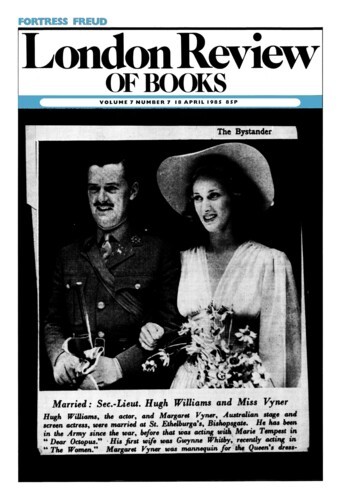Stories
Adam Morton, 18 April 1985
It would be nice to know what to believe. In many areas of opinion, though psychology is a particularly good example, it is easy for an idea to be attractive, sometimes almost irresistibly so, without there being much reason for thinking that it is true. If epistemology existed – a science of evidence – it would sort these things out for us, and tell us when the evidence really backs up our inclinations. But, as seems with hindsight inevitable, epistemologies are as hard to evaluate as anything else. And so instead of asking, ‘Should I believe it?’ one often asks apparently easier questions: ‘What kind of reasons are these?’ ‘How does the evidence for this theory compare with the evidence for this other theory?’ Or simply: ‘Is this science?’’



